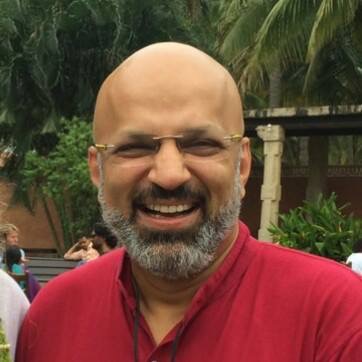Over the past weeks I’ve been on various board calls talking about the challenges that corporates and non-profits are facing on the mental health front. It’s a terrible time for so many people today. People are physically and emotionally drained after a year of the pandemic and the steep rise in fatalities over the past month in India.
What can employers do to help? Here are some of the things that I have learnt from some of these organisations on how they are trying to handle the mental health issues of their colleagues. A big shout out of thanks to my colleagues who shared their experiences with me.
First of all, we need to realise that people are different and handle grief differently. Some would like to talk about COVID. Some would like to talk about the pre-COVID world. And some would just want to discuss work. We need to tailor our interventions keeping this in mind. When talking to one CEO this afternoon, he told me that they did a company-wide survey and found that many did not want time off and preferred to be busy at work. These were mainly people who were single and living on their own. They preferred to come to office to maintain the human connect. At another place we declared a holiday for a week for the students and a 4-day break for the office team. Most people were very relieved.
Many organisations have set up hotlines to create a safe space for their people to talk to a counsellor. Some ensure that basic hygiene medicines like zinc and vitamins are made available to the team and their families. Many organisations have offered to pay for vaccinating the team and their families and many non-profits have provided health insurance to their teams.
Here are some of the other initiatives that organisations have taken:
- Tell the team that their jobs are intact for the next year. This would help reduce a big fear people have about being fired because business is slow.
- Sit with the team to visualise what a great day at work was or could be and then talk about it to motivate the team to look forward to a similar day soon.
- Randomly pair colleagues to have a 15-minute chat every week. This way they get to know a colleague better and share experiences with them.
- Call up people in the community you work in to let them know that someone out there cares for them. Many men broke down because they were struggling not being able to provide financially for their family. Many women talked about their fears of increased domestic violence.
- Talk to youngsters in the community and their families. They are worried about their jobs and young girls are worried about not being allowed to carry on their studies or work and being forced, instead, to get married.
- Celebrate successes both at the organisation and personal levels. Get colleagues who have recovered from COVID talk about their journey.
- Have meetings to replicate the coffee machine chats at office or the evening drinks at a restaurant or bar, with no shop talk allowed.
- Set up self-help groups to address the needs of colleagues.
- Organise online yoga and meditation sessions for the team.
- Organise workshops for the kids and families.
It is also important to keep in mind the even tougher time our frontline workers are facing – the nurses, doctors, ward staff, police, municipal workers, etc. They have extremely long hours with pathetic infrastructure, and many of them are worried about the health of their families at home. Cut them some slack and do not scream at them if things are not going as per plan. It is invariably because of reason out of their control.
These are extremely tough times and organisations that wear their hearts on their sleeves will emerge stronger with a fiercely motivated team.


